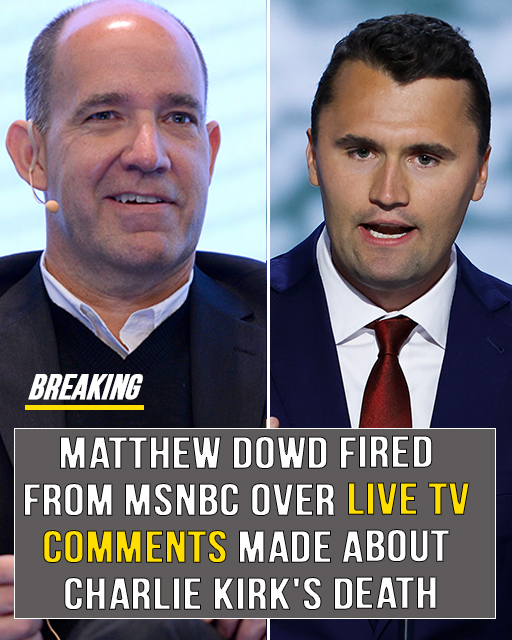The firing of an MSNBC analyst following comments made on live television about the death of Charlie Kirk has stirred debate about sensitivity, responsibility, and the line between commentary and compassion in the media.

Charlie Kirk, only 31 years old, was a prominent conservative political commentator and co-founder of Turning Point USA, a group well-known for its influence among young conservatives and its alignment with former President Donald Trump. On September 10, tragedy struck at Utah Valley University when Kirk was fatally shot through the neck by a single bullet believed to have been fired from the roof of a nearby building. He had been participating in his “American Comeback Tour,” an event that drew a large crowd eager to hear his views. The shocking moment was captured by bystanders and quickly shared online, spreading before many mainstream outlets could confirm the news. Initial reports said two individuals were detained, but both were released after investigators determined they had no links to Kirk’s death.
Former President was among the first to break the devastating news, posting a statement on Truth Social that praised Kirk as “The Great, and even Legendary” and someone who truly connected with America’s youth. He extended heartfelt condolences to Kirk’s wife, Erika, and their children, declaring, “Charlie, we love you!” The loss was not just a personal tragedy for his family, but also a moment of reckoning for a movement he had helped to shape. While many responded with grief and respect, not every outlet handled the announcement gracefully.
TMZ found itself under fire when background laughter was heard during a live segment covering Kirk’s death, later clarifying that staff had been reacting to an unrelated clip. But the most consequential backlash came after MSNBC analyst Matthew Dowd was asked to discuss the broader environment that might contribute to violence like this. In his response, Dowd suggested that Kirk himself had contributed to a climate of division. He described Kirk as “one of the most divisive younger figures” who had often pushed rhetoric that Dowd characterized as targeting certain groups.
He went on to link hateful thoughts, words, and actions, implying that this cycle of hostility was the backdrop against which tragedies like Kirk’s murder occur. While Dowd stopped short of directly blaming Kirk, many viewers saw his comments as inappropriate in the wake of such a shocking event. Social media erupted with criticism, accusing him of lacking empathy and exploiting the tragedy to score political points. MSNBC quickly responded to the uproar.
The network’s president, Rebecca Kutler, issued a statement acknowledging that Dowd’s remarks had been “inappropriate, insensitive and unacceptable.” She emphasized that both the network and Dowd had apologized, adding, “There is no place for violence in America, political or otherwise.” Despite the apology, the decision was made to terminate Dowd’s role at MSNBC, signaling the seriousness with which the network took the situation. For his part, Dowd followed up with a public statement on the platform Bluesky. He clarified that he had not intended to assign blame to Kirk for his own death, calling the attack “horrendous” and urging unity against violence of all kinds. “I apologize for my tone and words,” he wrote.
“Let us all come together and condemn violence of any kind.” His words, however, came too late to save his position, and the damage to his reputation had already been done. The episode has fueled discussions about the role of media commentators in moments of national shock and grief. In a polarized era, where words carry enormous weight and can be instantly amplified, the expectation of sensitivity in the immediate aftermath of tragedy has only grown stronger. Many believe Dowd’s firing was justified, reflecting a standard that commentary must not overshadow compassion. Others, however, argue that his analysis—while poorly timed—highlighted a reality about the toxic political environment in America.
The death of Charlie Kirk is, above all else, a devastating loss for his family and supporters. He was a controversial figure, admired and criticized in equal measure, but even his fiercest opponents have largely agreed that his killing was a senseless act of violence that cannot be excused. His passing has sparked renewed calls for addressing political tensions, protecting public figures, and finding ways to disagree without descending into hatred.
In the end, the firing of Matthew Dowd serves as a cautionary tale about the power of words in the wake of tragedy. While freedom of expression is protected, timing, tone, and empathy are equally crucial when lives are lost. For many Americans, the focus now remains on mourning Kirk, supporting his wife Erika and their children, and seeking answers about the circumstances of his death. The political debates will continue, but the immediate priority for many is remembering a man who, for better or worse, left a significant mark on the American political landscape.





